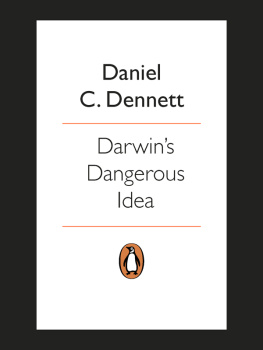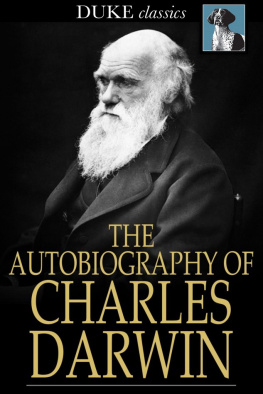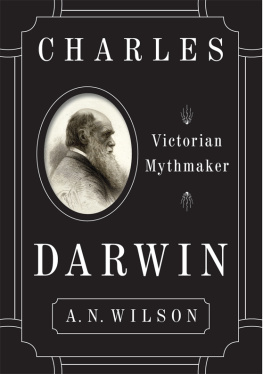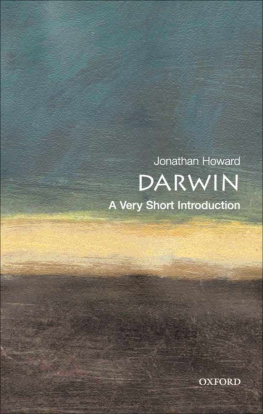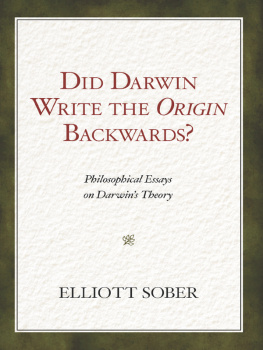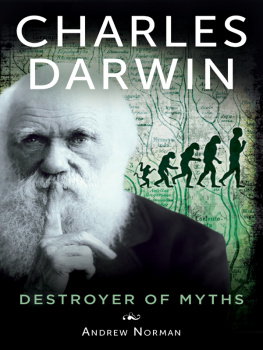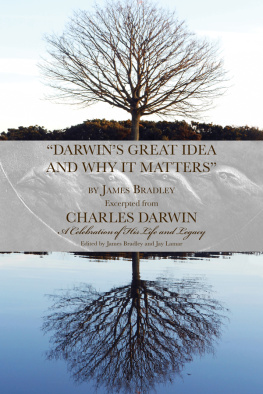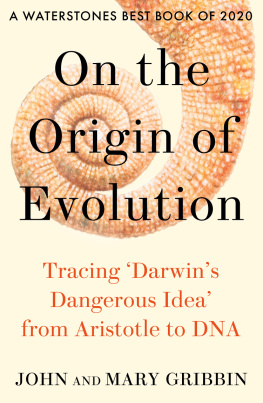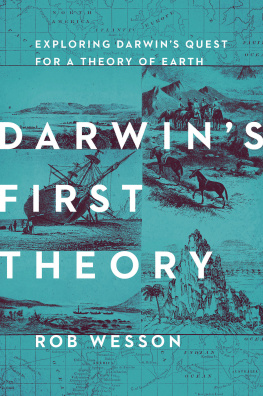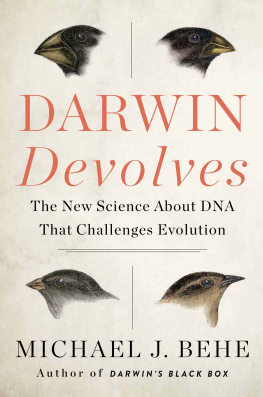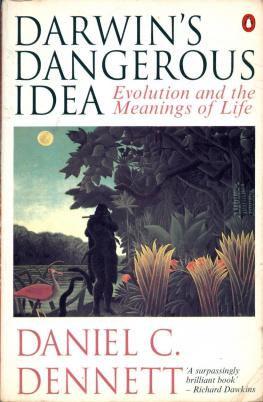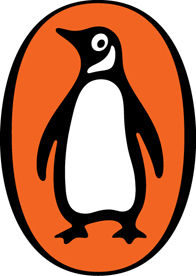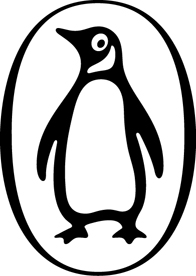Contents
THE BEGINNING
Let the conversation begin...
Follow the Penguin Twitter.com@penguinukbooks
Keep up-to-date with all our stories YouTube.com/penguinbooks
Pin Penguin Books to your Pinterest
Like Penguin Books on Facebook.com/penguinbooks
Find out more about the author and
discover more stories like this at Penguin.co.uk
Daniel C. Dennett
DARWINS DANGEROUS IDEA
Evolution and the Meanings of Life
PENGUIN BOOKS
DARWINS DANGEROUS IDEA
Dennetts dangerous idea: to use his gift for lucid explanation and his twinkling wit to cure the strange allergy to Darwin in modern intellectual life essential and pleasurable reading for any thinking person Steven Pinker
A discussion of Darwin and contemporary evolutionary biological theory that is exemplary in its presentation of ideas crucial to our understanding of ourselves Joyce Carol Oates in The Times Literary Supplement
In this clear and rigorous testing of Darwinian theory across modern science, Dennett persuades us that evolution by natural selection is vital to the future of philosophy Edward O. Wilson
A challenging, provocative read, especially the sections on ethics, language and meaning Above all, the final chapters are a great rallying call in favour of diversity, of tolerance and accomodation, of honesty. The mood is one almost of spirituality, but there is an underlying tone of realism not all of which is easy medicine Mary Mulvihill in the Irish Times
Excellent and stimulating. Most people who think they already know all about Darwinism will learn something new Anthony Gottlieb in the Spectator
Preface
Darwins theory of evolution by natural selection has always fascinated me, but over the years I have found a surprising variety of thinkers who cannot conceal their discomfort with his great idea, ranging from nagging skepticism to outright hostility. I have found not just lay people and religious thinkers, but secular philosophers, psychologists, physicists, and even biologists who would prefer, it seems, that Darwin were wrong. This book is about why Darwins idea is so powerful, and why it promisesnot threatensto put our most cherished visions of life on a new foundation.
A few words about method. This book is largely about science but is not itself a work of science. Science is not done by quoting authorities, however eloquent and eminent, and then evaluating their arguments. Scientists do, however, quite properly persist in holding forth, in popular and not-so-popular books and essays, putting forward their interpretations of the work in the lab and the field, and trying to influence their fellow scientists. When I quote them, rhetoric and all, I am doing what they are doing: engaging in persuasion. There is no such thing as a sound Argument from Authority, but authorities can be persuasive, sometimes rightly and sometimes wrongly. I try to sort this all out, and I myself do not understand all the science that is relevant to the theories I discuss, but, then, neither do the scientists (with perhaps a few polymath exceptions). Interdisciplinary work has its risks. I have gone into the details of the various scientific issues far enough, I hope, to let the uninformed reader see just what the issues are, and why I put the interpretation on them that I do, and I have provided plenty of references.
Names with dates refer to full references given in the bibliography at the back of the book. Instead of providing a glossary of the technical terms used, I define them briefly when I first use them, and then often clarify their meaning in later discussion, so there is a very extensive index, which will let you survey all occurrences of any term or idea in the book. Footnotes are for digressions that some but not all readers will appreciate or require.
One thing I have tried to do in this book is to make it possible for you to read the scientific literature I cite, by providing a unified vision of the field, along with suggestions about the importance or non-importance of the controversies that rage. Some of the disputes I boldly adjudicate, and others I leave wide open but place in a framework so that you can see what the issues are, and whether it mattersto youhow they come out. I hope you will read this literature, for it is packed with wonderful ideas. Some of the books I cite are among the most difficult books I have ever read. I think of the books by Stuart Kauffman and Roger Penrose, for instance, but they are pedagogical tours de force of highly advanced materials, and they can and should be read by anyone who wants to have an informed opinion about the important issues they raise. Others are less demandingclear, informative, well worth some serious effortand still others are not just easy to read but a great delightsuperb examples of Art in the service of Science. Since you are reading this book, you have probably already read several of them, so my grouping them together here will be recommendation enough: the books by Graham Cairns-Smith, Bill Calvin, Richard Dawkins, Jared Diamond, Manfred Eigen, Steve Gould, John Maynard Smith, Steve Pinker, Mark Ridley, and Matt Ridley. No area of science has been better served by its writers than evolutionary theory.
Highly technical philosophical arguments of the sort many philosophers favor are absent here. That is because I have a prior problem to deal with. I have learned that arguments, no matter how watertight, often fall on deaf ears. I am myself the author of arguments that I consider rigorous and unanswerable but that are often not so much rebutted or even dismissed as simply ignored. I am not complaining about injusticewe all must ignore arguments, and no doubt we all ignore arguments that history will tell us we should have taken seriously. Rather, I want to play a more direct role in changing what is ignorable by whom. I want to get thinkers in other disciplines to take evolutionary thinking seriously, to show them how they have been underestimating it, and to show them why they have been listening to the wrong sirens. For this, I have to use more artful methods. I have to tell a story. You dont want to be swayed by a story? Well, I know you wont be swayed by a formal argument; you wont even listen to a formal argument for my conclusion, so I start where I have to start.
The story I tell is mostly new, but it also pulls together bits and pieces from a wide assortment of analyses Ive written over the last twenty-five years, directed at various controversies and quandaries. Some of these pieces are incorporated into the book almost whole, with improvements, and others are only alluded to. What I have made visible here is enough of the tip of the iceberg, I hope, to inform and even persuade the newcomer and at least challenge my opponents fairly and crisply. I have tried to navigate between the Scylla of glib dismissal and the Charybdis of grindingly detailed infighting, and whenever I glide swiftly by a controversy, I warn that I am doing so, and give the reader references to the opposition. The bibliography could easily have been doubled, but I have chosen on the principle that any serious reader needs only one or two entry points into the literature and can find the rest from there.

